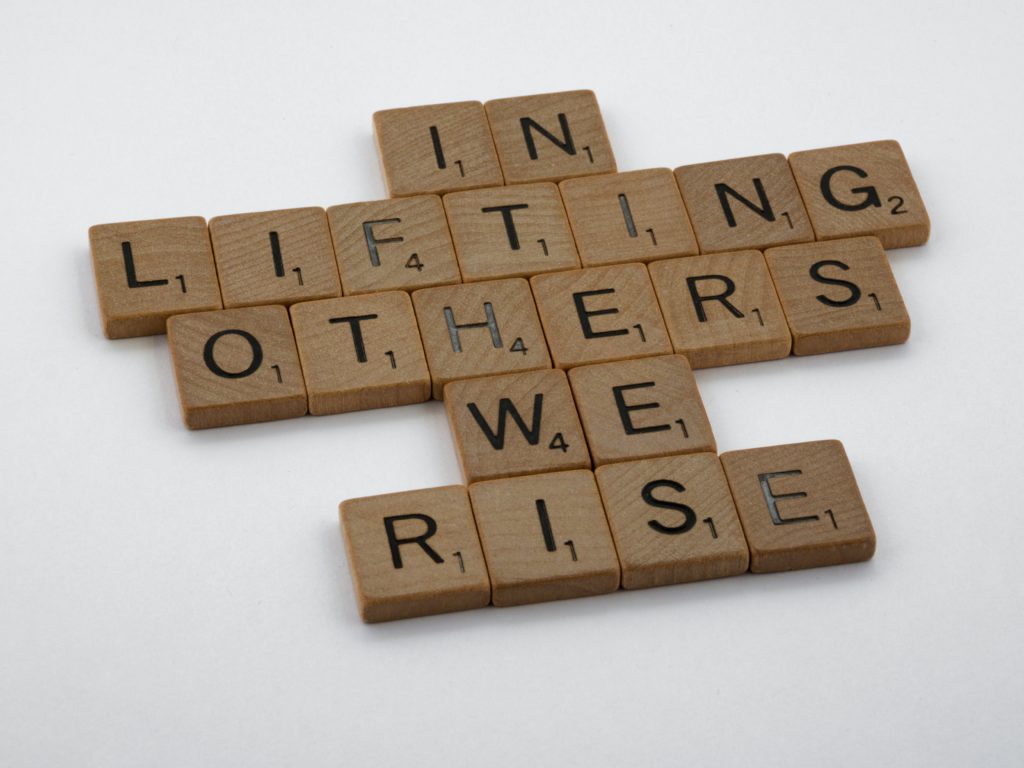Lost in Emotion
From infancy, society teaches us to hang in there and to give it all you’ve got because that is what it means to be a strong person; someone who can weather the storm. But that is a flawed theory! There are many instances in life where being strong means knowing when to let go; letting go of that which no longer serves us so that we may have room for that which aligns with who we are and where we want to be. As we grow and evolve, we may find that certain things or people and the emotions attached to them promote negativity in our lives and if we want to stay true to who we are we must let them go. Naturally the very idea is tough to wrap our minds around and our initial instinct is to justify why we should hold on. This reaction can be accredited to the fact that humans are creatures of habit and leaving behind that which we are accustomed to and comfortable with, even if it isn’t good for us, makes us anxious and fearful of the unknown. We at the Dismas Home of New Hampshire know all too well about that feeling, the one where your mind attempts to protect your heart because it doesn’t know what is behind door number 2. But we are here to tell you that learning to let go, especially of the negative emotions attached to your addiction, is a part of your journey, another chapter in your recovery story.
Lost in Emotion
Emotions are vital to our survival both positive and negative as when they are triggered our bodies are instantly and unconsciously affected in certain ways. Negative emotions are not a bad thing, fear, for example, signals our minds and bodies that our well-being may be at risk and puts us into survival mode. Problems arise when negative emotions such as anger, hatred, shame or fear are left unresolved; especially when they are attached to past trauma or pain (some of the very things that are partially responsible for your addictions). That is because each time we experience them thereafter, our bodies go into survival mode in the same way it did when our trauma/pain occurred. Those emotions then hijack our behavior which can cause us to spiral out of control and we all know how detrimental that could be. Because we were not taught how to properly resolve those issues, they often bleed into other aspects of our lives until they become one big black hole sucking all our energy, clouding our judgment and poisoning the mind which causes suffering to the body and soul. In Sanskirt( Hindu), this is referred to as Klesha meaning ‘poison’ or obstacles which imprisons and prevents us from enlightenment. This state of mind obscures the clarity of thoughts and understanding and inflicts psychological stress. There are five Kleshas that we need to understand, accept and work to overcome as getting control of these negative feelings, behaviors and emotions will set us free.
Kleshas
- The first is Avidya (ignorance) which is the ultimate cause of all suffering as it fuels the other four. In this regard, ignorance relates to the state of not being engaged with life, being passive and withdrawn from the fullness of it. The mind, out of fear and habit retreats from truth and engages in distractions and denials and misses the wonders of life.
- The second is Asmita (Egoism or I-am-ness) which is the attachment to our egos, mistaking physical, emotional and mental aspects of the mind/body for our true selves. We create a self-image of ourselves that we believe is us then become trapped within that projection. This causes us to be separated from universal love because we are only focused on the ‘I’ and in turn that fuels negative emotions like jealousy and judgment.
- The third is Raga (Attachment) this is the attraction for things that bring satisfaction to oneself, the desire for material objects, relationships, status, power, pleasurable experiences and control. This blurs our vision as our one track mind chases our desires and when we can’t obtain them we set our sights on something new and we become trapped in an endless cycle.
- The fourth is Dvesha (Repulsion) this is aversion to unpleasant things, people and experiences. When we are displeased with the way something turns out it is because we are attached to the outcome in the form of our expectation which causes disappointment.
- The fifth is Abhiviesha (Will to Live or clinging to bodily life) this is the deepest and most universal Klesha, the most difficult to free yourself from. It is the fear of death and desire to live, even if life is filled with misery.
It's Time to Let Go, Dory!

So how do we overcome these Kleshas and let go of negative emotions? First you need to wholeheartedly accept yourself and your circumstances. Secondly, practice mindfulness by noticing your thoughts and surroundings, then observe your experiences, feelings and emotions then allow them to move past you. Don’t get sucked into a storm you didn’t create and can’t control. Lastly avoid expectations as they breed resentment which is the quickest way to reach discontentment. Learn to see each day as a new beginning rather than the continuation of yesterday, last week, month, year… Today is brand new, you have never seen it before, so declutter your mind, be present and live in the moment.
It's Time to Let Go, Dory!
It’s not just a house; The Dismas Home of New Hampshire, located in Manchester, offers women a home with the one-on-one support needed for recovery, family reunification, and re-entry. Dismas Home of New Hampshire is a 501(c)3 nonprofit organization.







